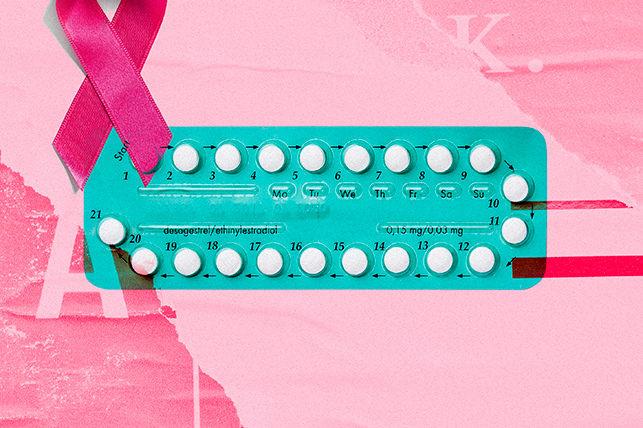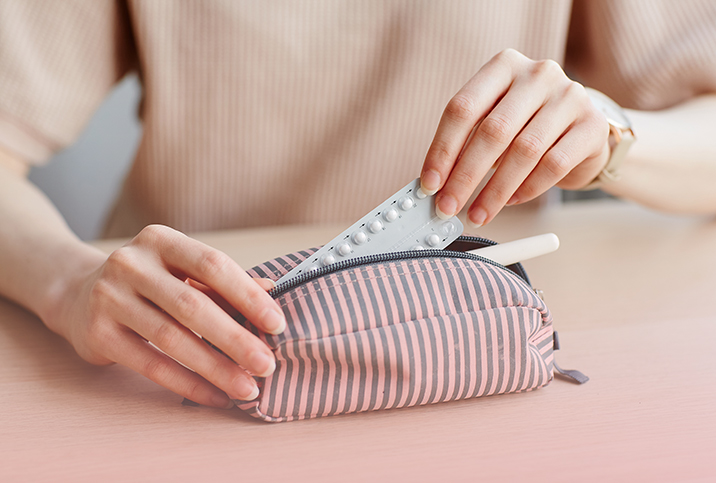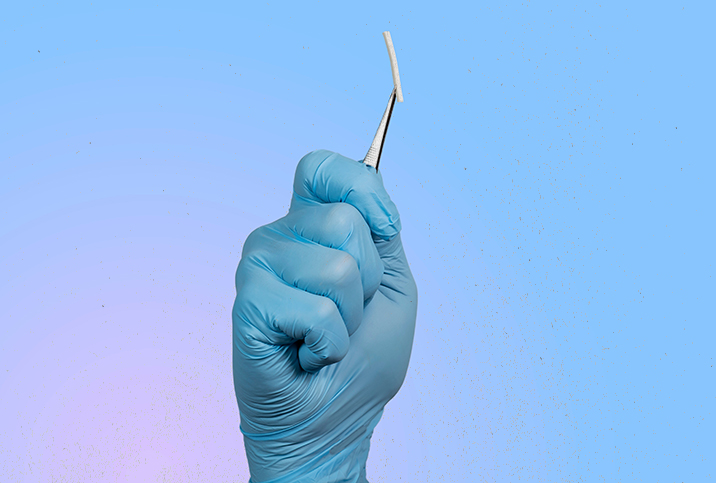All Hormonal Birth Control Slightly Raises Breast Cancer Risk

Researchers have long known contraceptives combining estrogen and progestogen can slightly raise a person's chances of developing breast cancer.
However, the risk associated with progestogen-only contraceptives—such as intrauterine devices (IUDs) and the progestogen-only "mini-pill"—has until now been largely understudied.
A new study published on March 21 in PLOS Medicine revealed a similarly small increased risk of breast cancer across all hormonal birth control methods, including progestogen-only methods.
"Recent use of hormonal contraceptives is associated with about a 20 to 30 percent higher risk of breast cancer," said Kirstin Pirie, M.Sc., a researcher at the University of Oxford and corresponding author of the study. "This risk does not appear to vary by the type of contraceptive prescribed."
However, as the underlying risk of breast cancer is small for women in their 20s and 30s, Pirie does not recommend people cease taking hormonal birth control, regardless of risk, which, as she emphasized, is minuscule and goes away after stopping use.
About the research
For the study, Pirie and her research team pulled data on about 9,500 women younger than age 50 who were diagnosed with breast cancer and compared it with data on more than 18,000 people under 50 who hadn't been diagnosed with the disease.
They found 44 percent of the women with breast cancer and 39 percent of the people in the control group had a hormonal birth control prescription, about half of which were for progestogen-only methods. Breast cancer risk increased by 20 percent to 30 percent for women on birth control, and was consistent across four types of birth control: pills, injectables, implants and IUDs.
The researchers combined their data with the results of previous studies, which included data on participants from a wide age range. Based on the results, they estimated the excess risk of getting breast cancer over a 15-year period ranged from 8 in 100,000 women who took hormonal birth control between the ages of 16 to 20, to 265 in 100,000 women who took hormonal birth control between the ages of 35 to 39. The researchers also found the risk of breast cancer steadily declined in the years after halting the use of contraception.
"This study focuses on the recent use of hormonal contraceptives, as we were unable to assess the longer-term risks for women who stopped using many years ago," Pirie noted. "We were also unable to assess the effects of the total duration of use on breast cancer risk, as we did not know when some women first started using."
Key takeaways
"We wouldn't advise people to change their method of contraception based on this study," said Alice Davies, health information manager at Cancer Research UK, the organization that funded this study. "I think it's really important to put this into context. It's quite a small increased risk that depends on a lot of different things, largely, the age you are when you take it.
"We know a lot of women who take the contraceptive pill are generally at a younger age where their risk of breast cancer is a lot lower, and when you stop taking the pill, your risk actually starts to decrease," she continued. "Ten years after you've stopped taking [hormonal birth control], your [breast cancer] risk will be the same as if you never took it."
Monte Swarup, M.D., a board-certified OB-GYN in Arizona who was not involved in the study, agreed.
"The increase in breast cancer risk must be viewed in the overall context of the well-established benefits of using birth control during reproductive years," he said.
The benefits of using hormonal contraceptives include a long-lasting, persistent reduction in the risk of ovarian and endometrial cancer, as well as the prevention of premenstrual syndrome (PMS), iron deficiency and ovarian cysts.
Instead of changing their birth control, Davies advised people to focus on reducing their breast cancer risk in other ways.
"There are lots that we can do to reduce our breast cancer risk, things that are a lot easier than changing the contraception you're on," Davies said. "Drinking less alcohol, keeping a healthy weight, being physically active, all of these things can help reduce our breast cancer risk and be a lot less disruptive to your life."


















